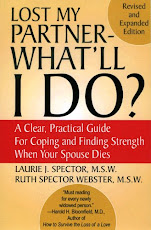
Arrangement in Grey and Black: The Artist's Mother, famous under its colloquial name Whistler's Mother, is an 1871 oil-on-canvas painting by American-born painter James McNeill Whistler. Now owned by the Musée d'Orsay in Paris, it occasionally tours worldwide.
Anna McNeill Whistler posed for the painting while living in London with her son. Several unverifiable stories surround the making of the painting itself; one is that Anna Whistler acted as a replacement for another model who couldn't make the appointment. Another is that Whistler originally envisioned painting the model standing up, but that his mother was too uncomfortable to pose standing for an extended period.
The work was shown at the 104th Exhibition of the Royal Academy of Art in London (1872), but first came within a hair's breadth of rejection by the Academy. This episode worsened the rift between Whistler and the British art world; Arrangement would be the last painting he would submit for the Academy's approval.
The sensibilities of a Victorian era viewing audience would not accept what was apparently a portrait being exhibited as a mere "arrangement"; thus the explanatory title "Portrait of the Artist's Mother" was appended. It was from this that the work acquired its
popular name.
Whistler would eventually pawn the painting, which was acquired in 1891 by Paris' Musée du Luxembourg. As a proponent of "art for art’s sake", Whistler professed to be perplexed and annoyed by the insistence of others upon viewing his work as a "portrait."
In his 1890 book The Gentle Art of Making Enemies, he writes: "Take the picture of my mother, exhibited at the Royal Academy as an 'Arrangement in Grey and Black.' Now that is what it is. To me it is interesting as a picture of my mother; but what can or ought the public to care about the identity of the portrait?"
Given this outlook, whatever the level of affection Whistler may have felt for his own mother, one finds an even more divergent use of the image in the Victorian era and later, especially in the United States, as an icon for motherhood, affection for parents, and "family values" in general.
For example, in 1934 the U.S. Post office issued a stamp engraved with a stylized image of "Whistler's Mother," accompanied by the slogan "In Memory and In Honor of the Mothers of America."
Later the public's interpretation of the symbolism of the painting went even farther afield, and it appeared in a myriad of commercial advertisements and parodies, such as doctored images of the subject watching a television, sometimes accompanied by slogans such as "Whistler's Mother is Off Her Rocker."
Now, is that any way to talk about a mother?









